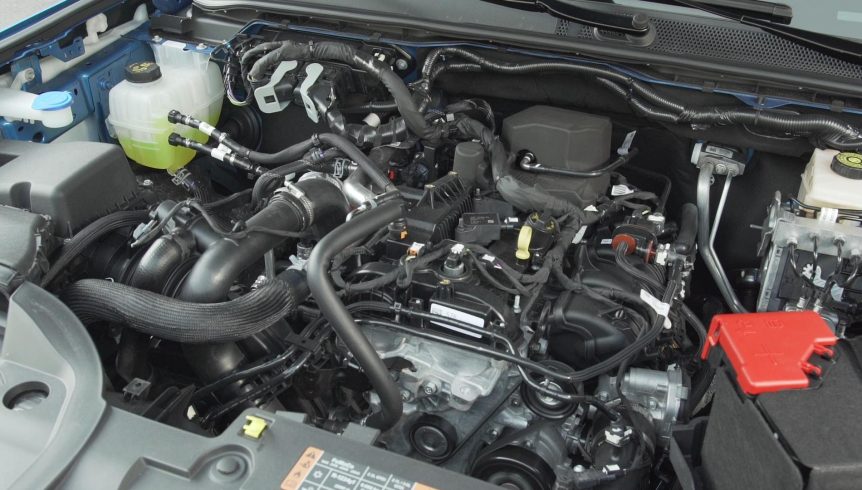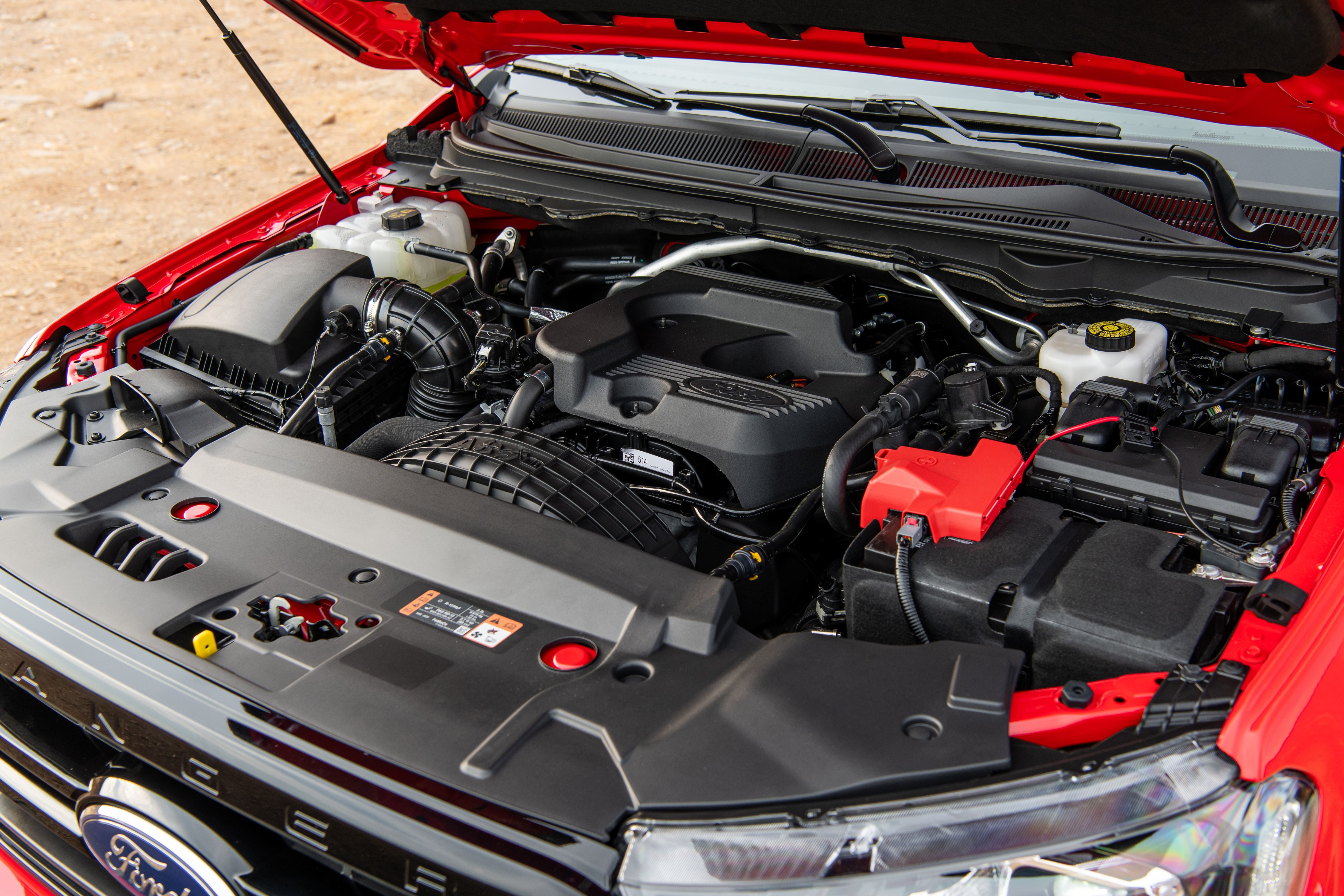Why the 2.2 Ford Ranger Engine Is a Popular Choice for Rugged and Reliable Performance
Why the 2.2 Ford Ranger Engine Is a Popular Choice for Rugged and Reliable Performance
Blog Article
Exactly How to Pick the Right Car Engine for Optimum Efficiency and Efficiency
Selecting the suitable vehicle engine to achieve an ideal balance of efficiency and efficiency demands a nuanced understanding of various engine kinds and their details features. Elements such as engine variation, the number of cylinders, and gas type play an essential role in establishing both power output and gas economic climate. While some might lean in the direction of performance-driven options, others may focus on sustainability and effectiveness. Comprehending these characteristics is necessary; however, the difficulty depends on straightening these characteristics with your private driving needs and choices. What considerations will eventually direct your choice?
Understanding Engine Kind
When selecting an auto, among the most critical components to consider is the engine type, which functions as the heart of the car. The engine type substantially affects the cars and truck's overall efficiency, long life, and viability for your driving demands. There are primarily 3 engine kinds to take into consideration: interior burning engines (ICE), hybrid engines, and electric engines.
Inner combustion engines stay the most usual, operating fuel or diesel. They are known for their power and acceleration, making them ideal for performance-oriented lorries. They might drop short in fuel performance and ecological effect.
Hybrid engines integrate an internal combustion engine with an electrical motor, providing a balance between efficiency and fuel economic climate. They are significantly preferred for motorists seeking minimized exhausts while still providing adequate power.
Electric engines, powered totally by batteries, are acquiring traction as a result of their environmental benefits and reduced running prices. They provide instant torque and a quiet driving experience, making them suitable for metropolitan commuting.

Performance vs. Performance
Selecting the appropriate engine kind involves evaluating the compromises in between efficiency and performance. Performance normally describes just how well an engine can deliver power and acceleration, which is commonly connected with larger variation engines or those with turbocharging capacities. These engines normally offer thrilling driving experiences and quick feedback times, making them popular among fanatics.
On the other hand, efficiency concentrates on fuel economy and lower discharges. Smaller sized engines, especially those outfitted with advanced technologies such as straight gas injection and variable valve timing, often tend to supply much better miles per gallon and decreased carbon footprints. While these engines might compromise some power contrasted to their bigger counterparts, they frequently excel in everyday driving scenarios where high performance is not constantly essential.
Ultimately, the choice in between efficiency and effectiveness rest on individual concerns. A motorist that values spirited driving could prioritize a high-performance engine, while somebody seeking cost-efficient commuting may lean towards an effective choice. Recognizing these trade-offs is critical for making an educated choice that straightens with your driving requirements and way of living, making certain that the picked engine kind matches your assumptions for both performance and efficiency.
Key Specs to Take Into Consideration
Understanding vital requirements is important for making a notified choice about the ideal vehicle engine. When choosing an engine, numerous important aspects call for consideration to guarantee ideal efficiency and effectiveness.
It shows the overall volume of the engine's cyndrical tubes and generally associates with power outcome; larger displacements commonly yield even more power. Engines with Get More Information more cylinders can give smoother procedure and higher power, while smaller sized configurations can improve gas performance.
Furthermore, the engine's configuration, whether inline, V-type, or rotary, affects the general style and performance qualities of the car - 2.2 ford ranger engine. Turbocharging and supercharging technologies must additionally be evaluated; these increase an engine's power output without dramatically increasing its size, hence improving performance
Gas type is one more key consideration, as it affects both efficiency and costs. Last but not least, the engine's compression ratio impacts effectiveness and power distribution; a greater ratio typically brings about better effectiveness, yet might require premium fuel. By meticulously evaluating these specs, you can select an engine that straightens with your efficiency and effectiveness objectives.
Assessing Driving Needs
Evaluating driving requirements is an essential action in figuring out the ideal automobile engine for your way of life and use patterns. If your driving mainly consists of short commutes in metropolitan settings, a smaller engine with good gas performance may be enough.
Take into consideration the terrain you normally navigate. Hilly or sturdy content landscapes may demand an engine with higher torque for much better performance. Furthermore, assess guest and cargo demands; bigger families or those that carry items may take advantage of automobiles with increased power and capability.
It's also important to review your gas choices. Diesel motor usually offer exceptional torque and gas economy for larger lorries, while fuel engines might give a smoother and quieter trip. Aspect in ecological factors to consider, as hybrid or electric engines can supply a much more lasting more tips here alternative without giving up efficiency. By thoroughly comprehending your driving needs, you can make an enlightened choice that straightens with both efficiency assumptions and effectiveness goals.
Future Fads in Engine Modern Technology
As the automobile market remains to develop, developments in engine modern technology are leading the way for extra lasting and efficient driving experiences. One significant pattern is the shift toward electrification, with crossbreed and completely electrical powertrains gaining prestige. Automakers are spending heavily in battery innovation to improve power density and minimize billing times, eventually enhancing the practicality of electrical cars (EVs)
One more arising fad is the advancement of hydrogen fuel cell engines. 2.2 ford ranger engine. These systems provide the possibility for zero-emission driving while offering refueling times comparable to typical gas engines. In addition, advancements in combustion modern technology, such as variable compression ratios and improved turbocharging, are optimizing typical interior combustion engines for better efficiency and efficiency
Digital integration is also a vital element of future engine modern technology. The implementation of expert system and artificial intelligence enables real-time information evaluation, making it possible for smarter engine monitoring systems that adapt to driving problems and improve gas performance.

Verdict
To conclude, selecting the appropriate automobile engine necessitates a thorough assessment of different aspects, consisting of engine kind, efficiency requirements, and performance goals. By understanding the differences between various engine kinds and considering key requirements, individuals can align their options with specific driving needs. As improvements in engine technology proceed to emerge, remaining informed concerning future fads will even more enhance decision-making, inevitably resulting in a car that stabilizes efficiency and fuel efficiency effectively.
Selecting the ideal auto engine to attain an optimum balance of efficiency and performance requires a nuanced understanding of different engine kinds and their specific features. There are primarily 3 engine types to consider: inner burning engines (ICE), hybrid engines, and electric engines.
Efficiency generally refers to exactly how well an engine can supply power and velocity, which is typically associated with larger displacement engines or those with turbocharging abilities. Diesel engines commonly use superior torque and fuel economic climate for larger cars, while fuel engines might give a smoother and quieter trip.In conclusion, selecting the suitable car engine requires an extensive analysis of different elements, consisting of engine type, performance needs, and performance goals.
Report this page